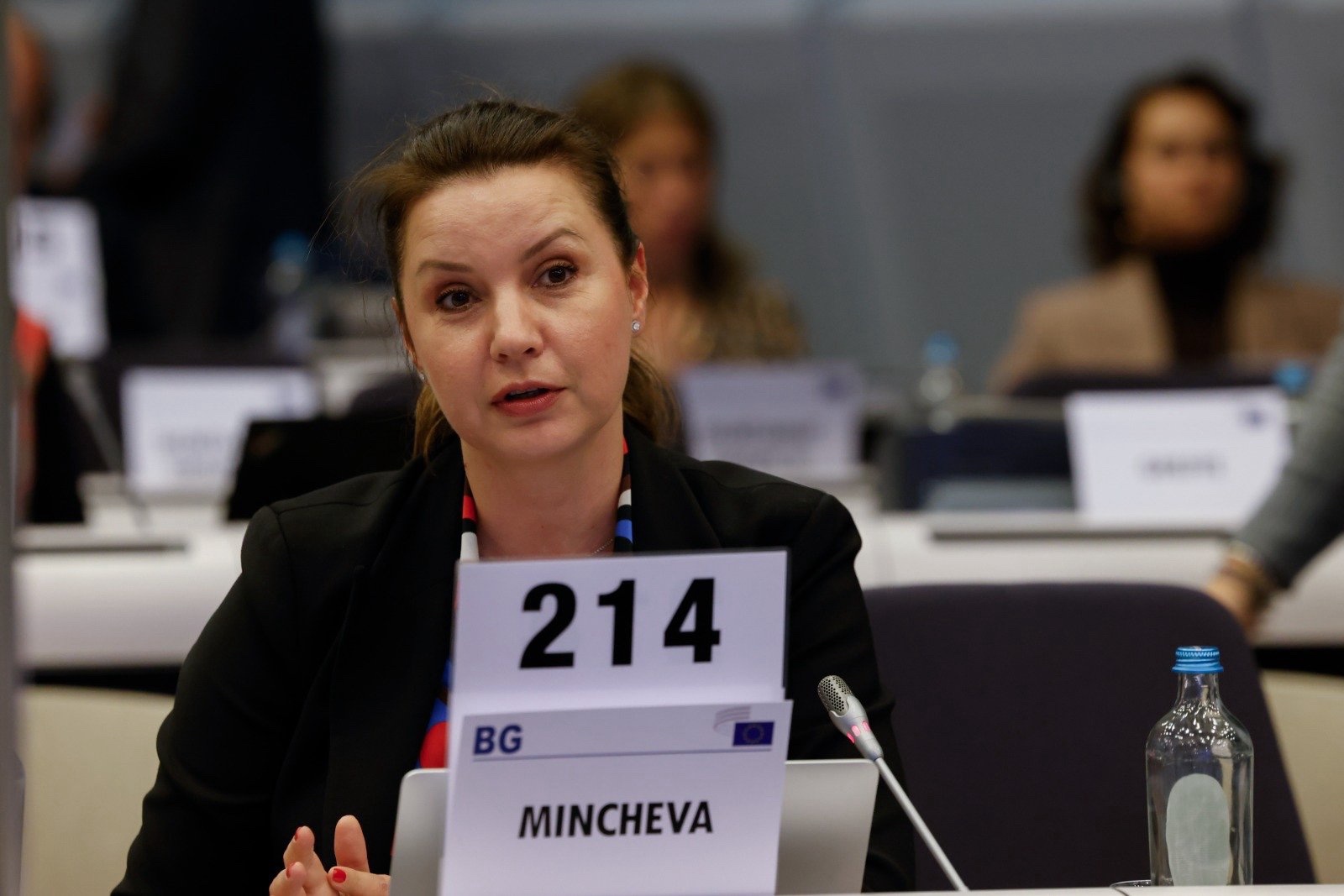BIA Vice President Mariya Mincheva participated in the 584th plenary session of the European Economic and Social Committee (EESC), which takes place on 17 and 18 January 2024 in Brussels. Mariya Mincheva is a member of the Employers Group 1 of the EESC.
Among the more important debates on the agenda of the Forum are:
- Priorities of the Belgian Presidency of the Council of the European Union for an economic and social Europe, with Pierre-Yves Derman, Deputy Prime Minister and Minister for the Economy and Employment of Belgium, at 5 pm on 17 January;
- European competitiveness and the future of the internal market, linked to the adoption of opinion INT/1043: Developing a new European strategy for the internal market: helping our businesses meet the technological, social, environmental and competitive challenges, at 15:00 on 17 January;
- Priorities of the Belgian Presidency of the Council of the European Union, with David Clarinval, Deputy Prime Minister and Minister for the Middle Class, the Self-Employed, SMEs, Agriculture, Institutional Reforms and Democratic Renewal of Belgium, at 9.00 on 18 January;
- Cross-border energy infrastructure planning, linked to the adoption of the opinion on TEN/823: Cross-border energy infrastructure planning, with Tinne Van der Straeten, Minister of Energy of Belgium, at 10.15 on 18 January.
"The Belgian presidency is extremely important as it is taking place at the end of the current political cycle and will aim to pave the way for the next one", Mariya Mincheva underlined in her speech to the EESC plenary session. The BIA Vice President expressed hope that the strategic agenda for the next political cycle will focus on what is most important - realigning the Green Deal so that it is truly a strategy for growth, ambitious and forward-looking industrial policy, business-friendly regulations and taxation, access to resources and people with the right skills, and always taking into account the cumulative impact of EU legislation on companies.
As a member of the Employment and Social Affairs Section of the EESC, Mariya Mincheva highlighted the following:
“Inevitably, the European Pillar of Social Rights significantly impacted the development of the EU social acquis. Some of the legislative dossiers are still undergoing, but most of them have been put to an end in the political cycle. We have an updated Pay transparency directive and an adequate MW directive; the work on the Platform work directive is in the advanced stage of negotiations, to name just a few. In a few weeks, we expect the EC proposals for the EWCs and telework and the right to disconnect. Not to mention the various soft initiatives – Strategic plans, recommendations, etc.
Member states, but also social partners need time to reflect now and focus on the proper implementation of what had already been adopted. Including and especially on the recommendation for strengthening the social dialogue. Lacking proper implementation put in question whether these extensive efforts to adopt EU legislation actually deliver for the well-being of society or if it is becoming some sort of regulatory competition.
The Presidency should seek to complete the important remaining files before the close of the current legislature, but preferably those that are essential for competitiveness and strengthening the European economy.”
The EESC has adopted its position on the revision of the Late Payments Directive (COM(2023) 533 final). According to the position, the EESC:
- welcomes the Commission's Communication on the SME Relief Package and the Commission's intention to further combat late payments. At the same time, the Committee is concerned that the transformation of the current Directive into a Regulation might limit the flexibility of Member States and of the business environment at a time of multiple headwinds across the EU.
- considers that late payments are detrimental to small business owners, their families and their employees with serious consequences on payments of utilities, rent and loans, as well as their morale and productivity.
- believes that the Commission, with its proposal, is attempting to tackle the issue of long payments instead of late payments by introducing excessively restrictive measures, instead of improving the current enforcement framework with more effective rules.
- underlines the importance of flexible negotiations when setting payment terms and highlights strong concerns over the Commission proposal. In effect, the proposed 30-day cap eliminates contractual freedom between companies.
- welcomes the proposed payment term set at 30 days for G2B transactions. Public authorities should lead by example as they represent an essential partner for businesses.
- sees the potential benefit of introducing national enforcement bodies. However, it stresses that such authorities will have to operate objectively and guarantee maximum confidentiality when treating the commercially sensitive information of both undertakings and public authorities, without imposing further obligations on reporting.
- believes that strict conditions on payment terms could potentially have an impact on commercial transactions within the single market and push business operations outside the EU. It would be easier to engage with suppliers from third countries which are allowed to accept longer payment terms. This could be a potential threat, to Europe's competitiveness and should be avoided.






